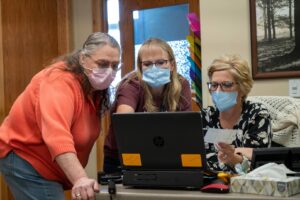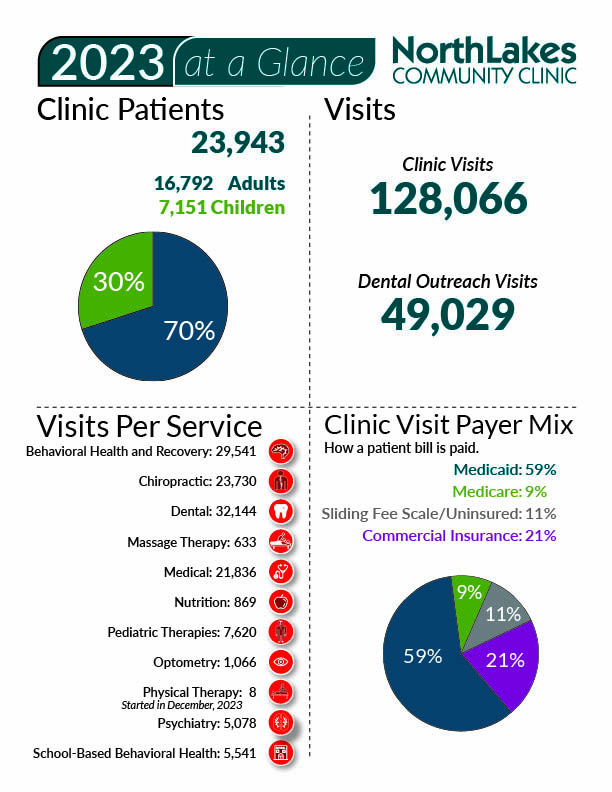Why do we collect the data?
For one thing, we have to report some of it. This quote from the Health Resources & Service Administration website sums it up well: “Each calendar year, HRSA Health Center Program awardees (like NorthLakes) and look-alikes are required to report a core set of information, including data on patient characteristics, services provided, clinical processes and health outcomes, patients’ use of services, staffing, costs, and revenues as part of a standardized reporting system known as the Uniform Data System or UDS.”
To learn more about UDS and compare different health centers across the country here is a link:
UDS Information
The numbers that we present here go beyond what we share with HRSA, because the more we know about our patients, the more we are able to help.
How does NorthLakes use this information?
NorthLakes uses these numbers in many ways.
We use it to quantify where we are gaining traction towards our vision of Healthy, prosperous, engaged communities where everyone thrives.
It helps us understand who uses our services so we can continue to connect these individuals to our services. It also helps us understand the gaps in our services.
As a business, this annual benchmark lets us know if changes in the community, our practice, or the healthcare landscape has had an impact on our patients using our services so that we can do the best job possible in the communities we serve.
Different Ways People Pay
Commercial Insurance: Commercial health insurance is how most Americans get their health coverage. This type of insurance often comes through an employer-sponsored health insurance plan, but you can also buy a commercial health plan through other sources like the Affordable Care Act (ACA) marketplace.
Medicaid: Medicaid provides health coverage to millions of Americans, including eligible low-income adults, children, pregnant women, elderly adults and people with disabilities. Medicaid is administered by states, according to federal requirements. The program is funded jointly by states and the federal government. Check out NorthLakes Podcast episode #17 with Certified Application Counselor Patty Turner to learn more: NorthLakes Podcast.
Medicare: Medicare is the federal health insurance program for people who are 65 or older and certain younger people with disabilities.
Sliding Fee Scale: The Sliding Fee Scale Program is a federal discount program available at all of our clinics. A federal grant makes it possible, allowing discounted rates for services to eligible patients. The program criteria are based on a patient’s household size and income. Learn more about our Sliding Fee Scale Program here. We committed Northlakes Podcast episode #18 to this subject as well. Take a listen: NorthLakes Podcast.
Encounter: An encounter is considered an appointment between a patient and one of our billable providers.
When looking at these clinic profiles, you might find yourself wondering, why do some of our clinics have so many services and others do not? As a community partner, NorthLakes is focused on responding to the unmet needs of our communities, which means if someone else is offering the service or can do it better than us, we’ll find ways to partner with them versus compete with them. In some cases, it might not be possible to recruit the workforce needed to provide the service or the community has said they don’t need the service in the area. There are a lot of reasons we have such a wide range of services and varying payor mixes throughout the region but the common thread in most of our decisions is our desire to be a strong community partner and collaborator.



